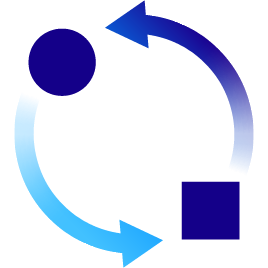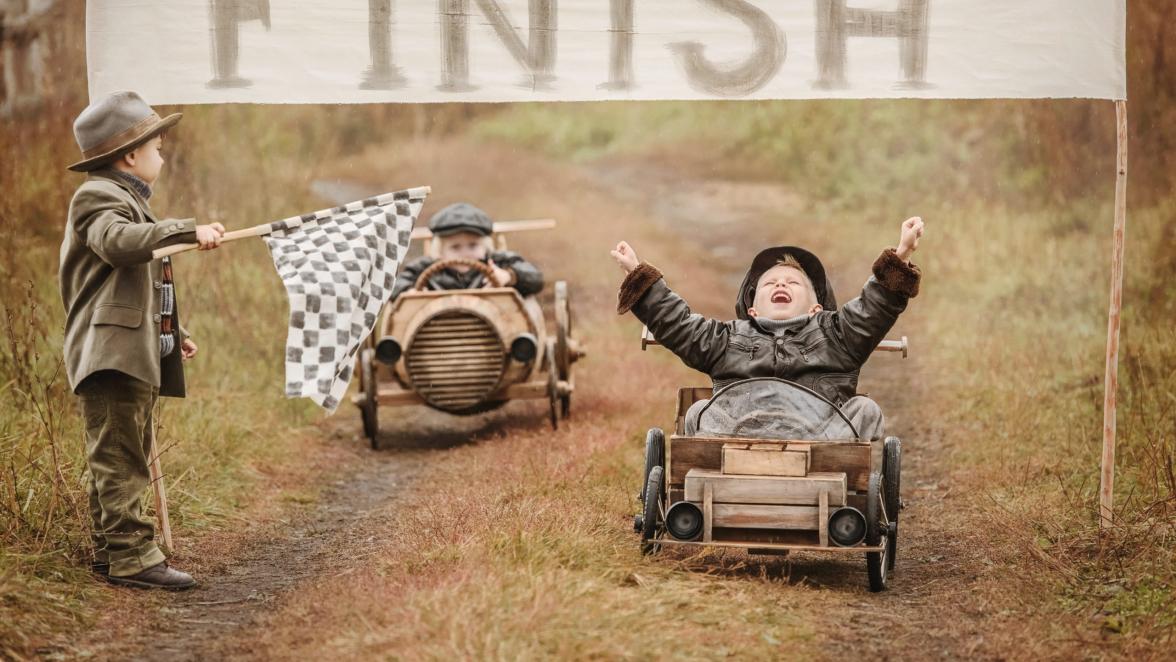As a child, my father (himself a financial advisor) had a single obsession—paying off our house. For him, debt was a burden he hated so thoroughly he referred to it as “a four-letter word, just like the rest of them.” To track his progress toward paying off the house, he kept a poster in his closet with the outline of a home filled with tiny squares, each representing one thousand dollars he owed. Each time he made a payment toward the house, he colored in the appropriate number of squares, inevitably sighing with deep satisfaction. As a consequence of this goal-orientation, as well as a lot of nights of us eating Beanee-Weenees, he was able to pay off our home at the young age of 35.
Inspired by my father, I set goals every year and memorialize them in a simple, graphical form on a poster hanging on the back of the door of my home office. Just like him, as I make progress toward those goals, I shade in the appropriate squares and exhale a deep, familiar sigh. Earlier this week though, I became frustrated as I looked at my 2020 goals and wondered if I had any chance of achieving them in light of the dramatic disruptions to life and work brought on by COVID-19. Many of those goals seem like a relic of another time and place entirely; a frivolous, carefree time that doesn’t look much like the one we inhabit today. Even getting the mail has turned into a bit of a time warp as I receive ads for home renovations, fantastic vacations, and new restaurants, all of which seem disconnected from the reality of social distancing.
My despair was short-lived as I remembered the words of my favorite psychiatrist Viktor Frankl, who said: “Between stimulus and response there is a space. In that space is our power to choose our response. In our response lies our growth and our freedom.” Much has changed in the last few weeks, and some of our freedoms have been limited, but one thing remains constant—our ability to choose our response to those changes. With Frankl’s example in mind, I tore up my poster full of goals and set a single new goal—win each and every day.
Winning the day means knowing what is controllable, working to control those things, and leaving the rest alone. For me, winning the day looks something like this in practice:
Keep relationships strong Relationships are one of our greatest sources of happiness, and the need to maintain social distance can have negative consequences if we are not intentional about connecting every day. Take the time to call, send a video, or just text friends, family, and colleagues to check in and maintain a sense of normalcy. One unexpected gift of this time is I’ve found myself more likely to connect virtually with those who I may have otherwise overlooked. If done correctly, I believe this period of required social distance can actually lead to a real closeness.
Remain active Physical activity is a second source of wellness that can be easy to overlook at a time when we have been asked to remain close to home. However, with my gym closed, I’ve found myself taking more frequent walks in the neighborhood (always sure to wave at neighbors from a safe distance) as well as new ways to do bodyweight exercises from home. Being active is as much about maintaining good mental health as it is physical health, and regular activity of some sort is a must in our new reality.
Move forward If asked for the ideal situation for our mental health, many of us would half-jokingly suggest something like laying on a beach with an umbrella drink, without a care in the world, and as nice as having no schedule may be in small doses, research contradicts the idea that extended periods of doing little are good for us. Decades of research have shown “advancement,” or getting better at something each day, and “engagement,” or doing meaningful work, are crucial to lasting happiness. The way we work may be changing, but the need to do meaningful work and to monitor our forward movement is one way we can show progress amid uncertainty.
Be mindful Like much of America, we are experiencing food and supply shortages that have made meal prep a little bit more of an adventure than usual. As someone blessed to live in a prosperous country during peacetime, I’ve never had to worry about not being able to get milk, eggs, or chicken if I wanted them, but I can promise you I will never take that for granted again. The need to homeschool has been maddening at times, yes, but has also provided the opportunity for moments of genuine connection that wouldn’t have happened otherwise. Our new reality comes with a host of restrictions, but also affords us new opportunities to appreciate what we have. It is a truism of human behavior that you see what you look for. If you’re looking for fear-mongering and negativity, there’s certainly plenty to go around. Still, there are also once-in-a-lifetime chances for stillness, connection, and recommitment to what is most important in life.
I couldn’t say with much certainty what December 2020 will look like for markets or life in general, but in a way, this is always true. Life can always change in an instant, a fact typically obscured by the normalcy of our 9 to 5. While I may not know what the future holds, I can remain committed to winning the day, confident in the fact great years are really just the culmination of a lot of great days.
The views expressed are those of Brinker Capital and are not intended as investment advice or recommendation. For informational purposes only. Brinker Capital, a registered investment advisor.
Tagged: Behavioral finance, Dr. Daniel Crosby, COVID-19





























